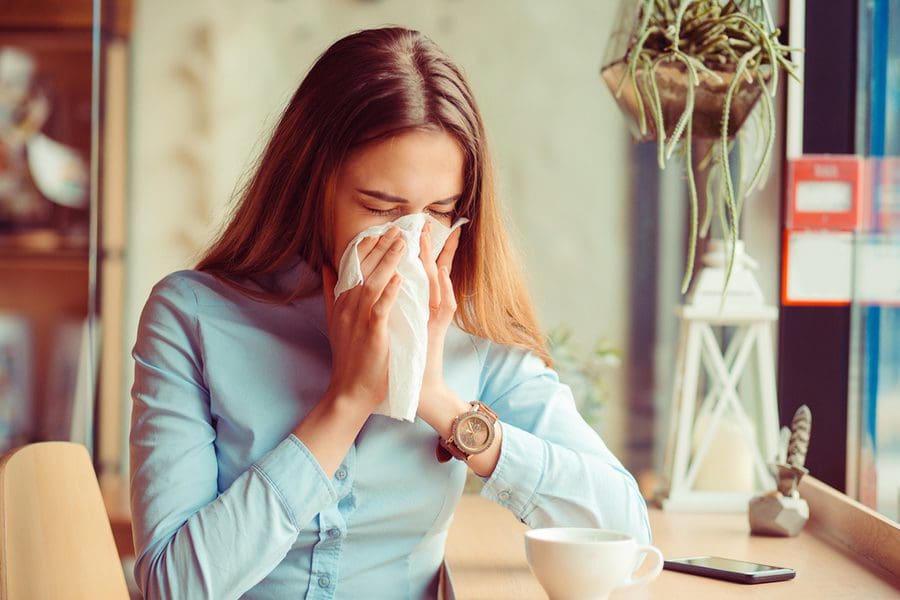Seasonal allergies suck. We can all admit that. But did you know seasonal allergies to pollen, mold spores, and even dust can do more than affect your sinuses? They can also wreak serious havoc on your skin.
You know how an allergy to a new moisturizer can lead to rashes, redness, and even breakouts? Seasonal allergies can do the same. The build-up of something your body is sensitive to, no matter its entryway, can cause an allergic reaction. So what effects can seasonal allergies have on your skin, and how can you combat these issues? Keep reading for the down-low on transitional skin care.
Acne
Let’s break it down. Blocked sinuses impede proper sleep, causing puffy eyes and congested skin. Blowing your nose, rubbing your eyes, and even sneezing causes you to touch your face more than usual, leaving acne-causing bacteria.
Although you can fight acne with topical treatments, in this instance it is better to treat these issues at the source. An over-the-counter antihistamine or nasal spray can help fight symptoms of seasonal allergies and get your skin back to normal.
Redness
You may notice your skin is more inflamed and irritated during allergy season. You may not have pimples or dryness, but your skin’s texture and appearance will likely be rougher and duller.
Drinking plenty of water can help flush the body of allergens and toxins, helping your skin clear up inflammation. Eat plenty of fruits and vegetables to ensure you are feeding your skin the vitamins it needs to stay bright and supple. Limit processed and sugary foods, as these will increase inflammation and sensitivity.
Irritation
Existing skin conditions, like eczema and rosacea, are more likely to erupt during prime allergy season. Allergens like mold, mildew, dust, and pollen irritate with your skin’s barrier and can cause dryness, itching, scabbing, redness, and pain.
If you suffer from these issues or extremely sensitive skin, it is best to visit your dermatologist before the start of the season to discuss the best options for you. Beyond getting professional help, make sure nothing in your skincare regimen is making things worse. Look for skincare products free from:
- Fragrance
- Retinol
- Benzoyl peroxide
- Glycolic acid
- Salicylic acid
- Alpha and beta hydroxy acids
- Physical exfoliants (scrubs)
These ingredients can aggravate the skin and make rashes, hives, eczema, and other issues worse. Keep your products lightweight, gentle, and moisturizing. If you are unsure about a product, discuss it with your dermatologist to see what the best option is for you.






